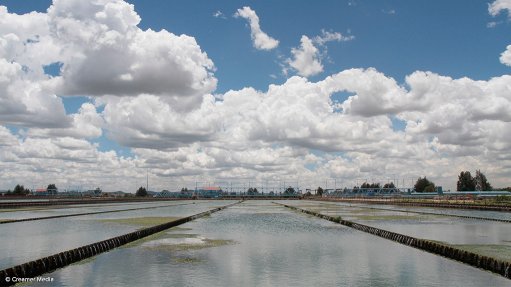
Photo by: Duane Daws
The African Development Bank Group (AfDB) has approved a $123.77-million loan to Angola to finance the country’s Institutional and Sustainability Support to Urban Water Supply and Sanitation Service Delivery project.
The project was aimed at improving water sector governance, strengthening institutional capacity and efficiency in the water and sanitation sector institutions at central and provincial level and improving access to sustainable water supply and sanitation services.
The project’s main outcomes include the establishment and effective functioning of seven autonomous provincial water supply and sanitation utilities, enhanced capacity for service provision at the central and provincial levels and expanded access to water supply and sanitation.
It would be implemented over a 60-month period across seven provinces – Cabinda, Cunene, Lunda Norte, Lunda Sul, Namibe, Bengo and Cuanza Sul – at a cost of $154.71-million.
According to the AfDB, the project would directly benefit 922 000 people and, ultimately, the urban population of 2.3-million across the seven provinces, through improved management and service delivery.
It would further increase access to water supply for an additional 338 000 people in peri-urban areas of the provincial capitals and another 75 000 people who would have access to safe wastewater infrastructure.
“Angola has been investing heavily in infrastructure following three decades of conflict and has made progress in many areas, including water supply and sanitation services. However, the investment in physical infrastructure has not been matched with adequate emphasis in the institutional and capacity domains.
“Lack of capacity and appropriate institutional mechanisms has negatively impacted the sustainability of existing investment. Service delivery is erratic and inefficient and highly subsidised with no cost recovery mechanisms in place. As a result of inefficient service delivery, the poor and vulnerable are the most affected in the peri-urban areas,” said the bank.
Recognising these needs, the AfDB said the government, through its National Strategic Program for Water and the Energy and Water Action Plan, had put emphasis on the improvement of sector governance and professionalising service delivery, along with critical investment to further expand access to services.
“The bank’s intervention will leverage investments made by the government and other partners. Its holistic approach, combining investment with developing capacity and strengthening institutions, would enhance sustainability.
The synergetic value addition for reforms and capacity building through the recently approved Bank Power Sector Reform Support Programme is significantly high and would promote the momentum for change,” it concluded.